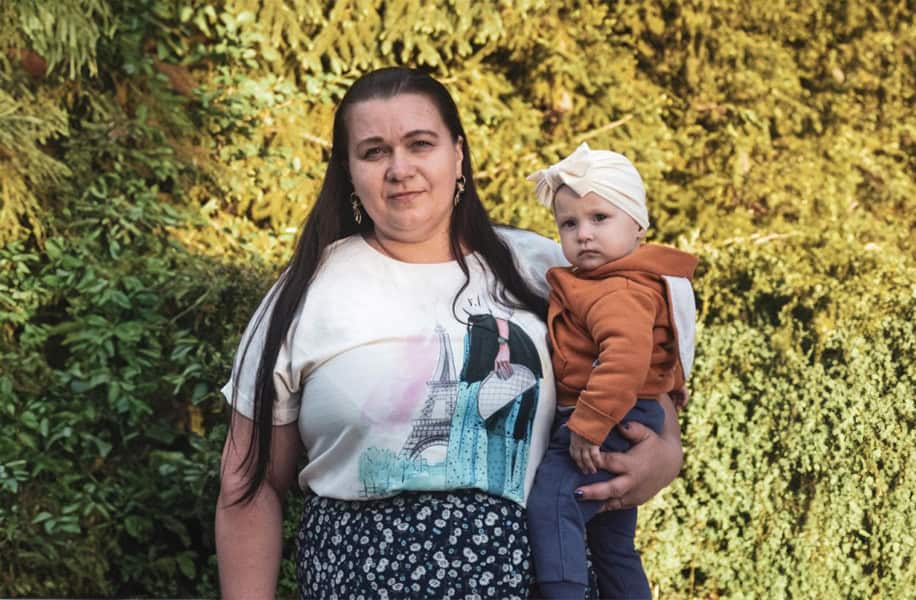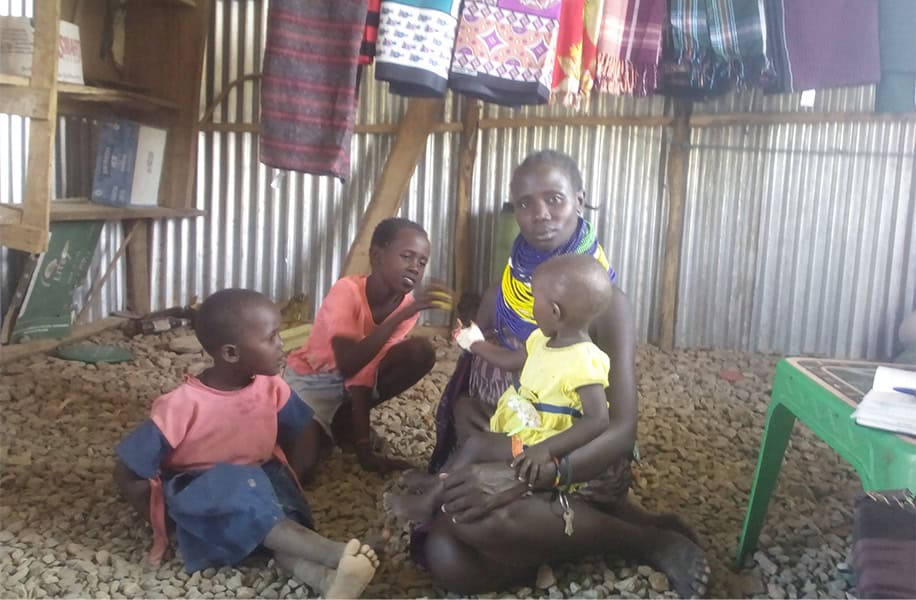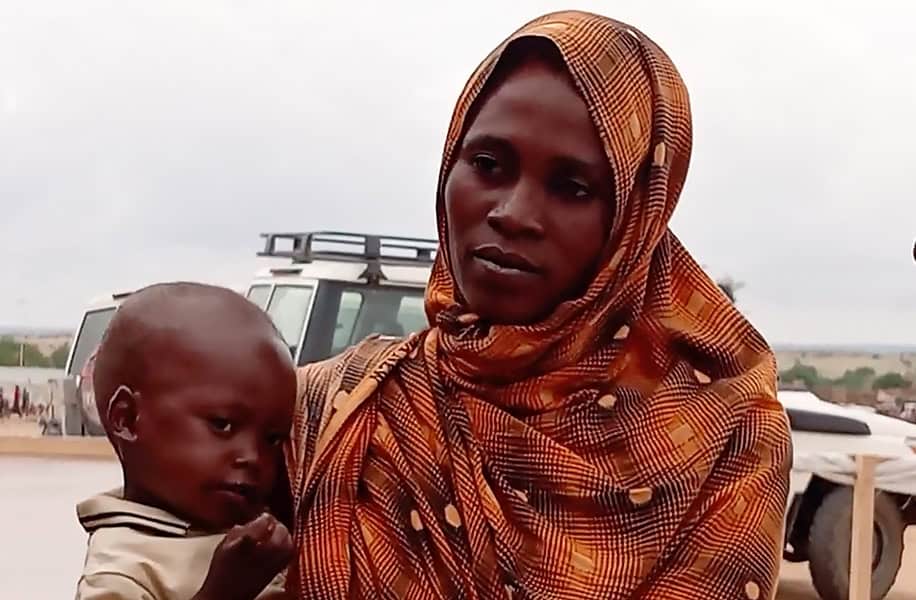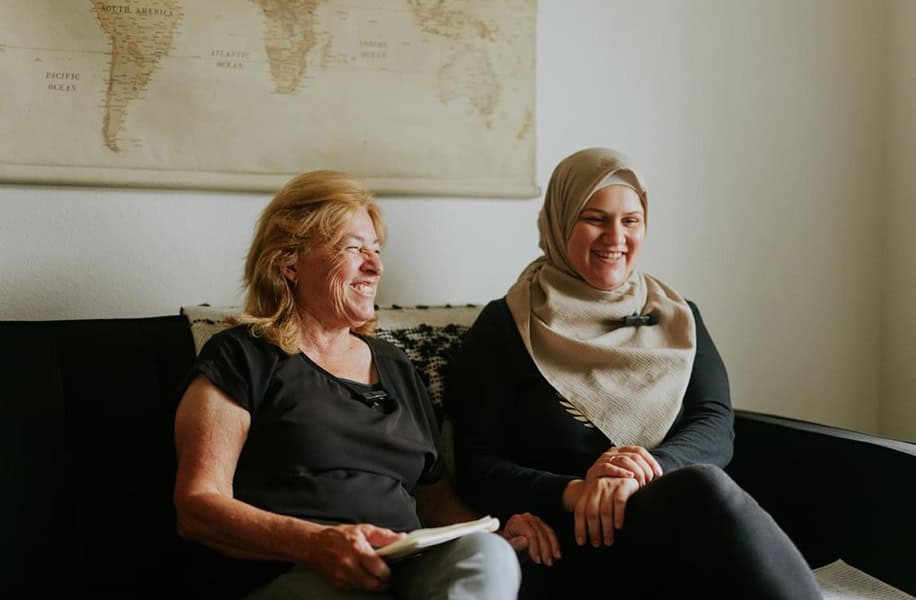|
Getting your Trinity Audio player ready...
|
God created us to flourish in community with others. In Genesis 2, the very first family and community were created when God said, “It is not good for man to be alone,” and then he created Eve to be a companion for Adam.
Communities are meant to be places of peace, safety, growth and belonging. However, so much of what we see in the world today stands in stark contrast to God’s vision for humanity. Millions of people have been uprooted from their homes and displaced from their communities due to factors outside their control.
At World Relief, we witness the staggering scale of this crisis daily in the communities where we work. Today, I want to share a few of those stories with you and tell you how you can be a part of the solution. Here are four ways your partnership with World Relief helps displaced families flourish in community.
1. You Engage Communities in Crisis
In early 2022, Lyubov, her husband and five children were uprooted from their home near the Russian border when war broke out in Ukraine. They took just one bag of belongings and settled in Zaporizhzhia. There, they spent the only funds they had on an apartment and struggled to make ends meet. But then they connected with World Relief’s partner, Save a Life — an organization that provides economic assistance and much-needed support to mothers and pregnant women who have been displaced by the war.
“It wasn’t like any other center where you come for help and leave,” Lyubov said. “Here, they comprehensively care for every mother, every child, every woman preparing for motherhood.”
When a crisis strikes — whether it’s a war, natural disaster or economic collapse — entire communities are torn apart, and displaced families like Lyubov’s are forced to leave everything behind. These emergencies are overwhelming. The fear and uncertainty that accompany displacement is unimaginable, but this is where World Relief steps in, engaging communities in crisis to respond to emergency humanitarian needs.
Our approach is unique because we work through local churches and organizations like Save a Life which are already rooted in the communities. This allows us to respond quickly and efficiently to meet the urgent needs of displaced families like Lyubov’s. Compassionate care, coupled with practical resources, helps ease the trauma these families face as they wait out war or the aftermath of disaster and begin the long journey of rebuilding their lives.

2. You Build Communities of Resilience
Not only are we engaging communities in crisis, but we are also building communities of resilience in regions vulnerable to crisis and displacement — regions like Turkana, Kenya.
Turkana has faced a multitude of challenges over the last few decades. Not only does it have one of the highest poverty rates in Kenya, the region has been shaped by a severe, multi-year drought that has killed livestock, dried up water sources and made it nearly impossible for pastoralist communities to survive.
But World Relief is there, bolstering stability and creating resiliency through programs in savings, health, agriculture, church mobilization and more. For Akipetot, World Relief’s presence made all the difference.
This mother of four is the primary breadwinner in her family because her husband is visually impaired. Even before the drought set in, Akipetot struggled to feed her family. It was not uncommon for them to go days without food. Local churches that had been mobilized by World Relief identified her as someone who could use some assistance. She was enrolled in a cash transfer program and was given cash to support her family. She used part of the money to feed her family and the rest to invest in clothing materials and petrol to start a small business selling fabric and fuel.
Today, Akipetot’s business is profitable enough to feed her family two meals a-day, which shielded them from the effects of drought and looming famine.
By empowering families economically and providing sustainable solutions, we help them stay rooted in their homelands. This work is critical because it strengthens communities, reduces the risk of future crises, and ensures that families can flourish where they are.
Did you know?
Monthly giving is the most impactful way to help displaced families like Lyubov’s and Rouda’s. Learn more about our monthly giving community – The Path – and multiply your impact today!

3. You Support Communities on the Move
Rouda is another young mother who has recently been affected by a crisis. She was forced to flee from her home in Sudan when conflict broke out last year. She and her three-year-old son, Mesri made their way to the Adre refugee camp in Chad. Mesri was severely malnourished and struggled to eat. But with support from World Relief Chad’s nutrition clinic at the camp, he is now eating and growing again.
Refugees and internally displaced people like Rouda and Mesri face numerous challenges as they navigate unfamiliar territories, often in unsafe and hostile environments. What’s more, host communities like the one they arrived in in Chad, are frequently stretched thin and in desperate need of resources.
With help from people like you, World Relief supports communities on the move by working with both displaced individuals and the communities hosting them, providing ongoing support through health services, education and livelihood opportunities. Our goal is to ease the burden on both the displaced and the hosts, ensuring that communities under strain can continue to offer a haven for those fleeing violence and persecution.

4. You Create Communities of Welcome
The displacement crisis continues to balloon across the globe, and we believe that U.S. churches have a role to play in creating welcoming communities for displaced families who arrive in the U.S.
From initial resettlement support, to advocacy and public policy efforts, all the way through to community integration activities and relationship building. We partner with churches and people like you to help women like Amani move from simply surviving, to thriving.
When Amani and her family fled Syria in 2011, they left everything behind. They lived as refugees in Egypt for several years before they were finally resettled in the U.S. in 2022. But starting over wasn’t easy, especially when it came to finding housing. Thankfully, World Relief connected Amani to Julie, a volunteer through World Relief’s Host Home Program.
Julie’s host home provided a welcoming place to land until Amani’s family found a place of their own. Once they did, World Relief, local churches and the local mosque all pitched in to provide furniture and household goods. Amani cleaned and decorated and made the apartment into a beautiful home. Now, with a restored sense of belonging and home, Amani’s children are enrolled in school, her husband is working on his English and pursuing a degree in graphic design and Amani is taking steps to get her cosmetology license.
Creating a community of welcome goes beyond providing basic needs—it’s about building relationships, fostering belonging, and ensuring that newcomers are fully integrated into their new communities. July and Amani’s story is just one example of how a person can thrive when they are connected with a vibrant, welcoming community.

Help Displaced Families with World Relief
The global displacement crisis is a vast and complex issue that we can’t afford to ignore. The hope comes when people like you take action so displaced families don’t have to suffer.
World Relief is responding directly to the displacement crisis in Haiti, Ukraine, Sudan and more. We’re also advocating for biblically-based immigration policies in the U.S. and building welcoming communities where refugees and other immigrants can thrive.
Will you join World Relief by giving today? Your gift will make a tangible difference for people like Amani, Lyubov, Rouda and Akipetot. Let’s rise to this challenge, united in compassion and faith. Will you boldly act to help refugees and displaced people today?

Myal Greene has a deep desire to see churches worldwide equipped, empowered, and engaged in meeting the needs of vulnerable families in their communities. In 2021, he became President and CEO after serving for fourteen years with the organization. While living in Rwanda for eight years, he developed World Relief’s innovative church-based programming model that is currently used in nine countries. He also spent six years in leadership roles within the international programs division. He has previous experience working with the U.S. Government. He holds B.S. in Finance from Lehigh University and an M.A. from Fuller Theological Seminary in Global Leadership. He and his wife Sharon and have three children.


